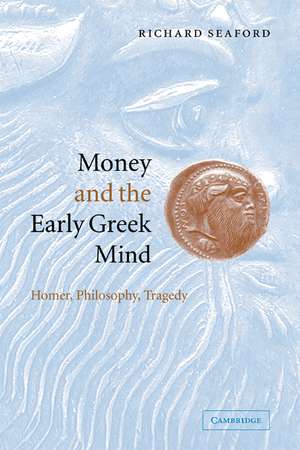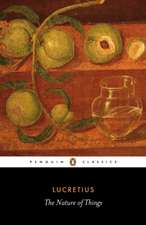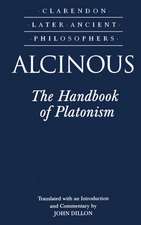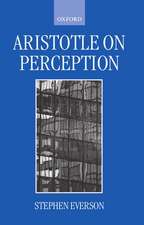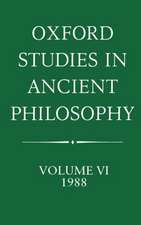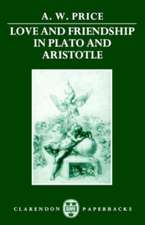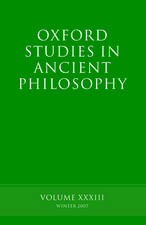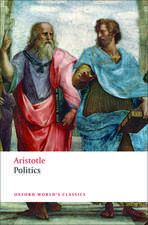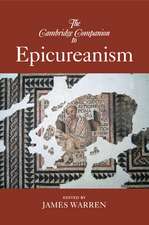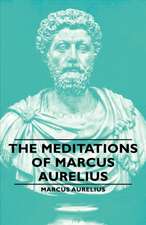Money and the Early Greek Mind: Homer, Philosophy, Tragedy
Autor Richard Seaforden Limba Engleză Paperback – 10 mar 2004
| Toate formatele și edițiile | Preț | Express |
|---|---|---|
| Paperback (1) | 350.91 lei 3-5 săpt. | +29.32 lei 10-14 zile |
| Cambridge University Press – 10 mar 2004 | 350.91 lei 3-5 săpt. | +29.32 lei 10-14 zile |
| Hardback (1) | 759.00 lei 6-8 săpt. | |
| Cambridge University Press – 10 mar 2004 | 759.00 lei 6-8 săpt. |
Preț: 350.91 lei
Nou
Puncte Express: 526
Preț estimativ în valută:
67.14€ • 70.29$ • 55.56£
67.14€ • 70.29$ • 55.56£
Carte disponibilă
Livrare economică 15-29 martie
Livrare express 04-08 martie pentru 39.31 lei
Preluare comenzi: 021 569.72.76
Specificații
ISBN-13: 9780521539920
ISBN-10: 0521539927
Pagini: 384
Ilustrații: black & white illustrations
Dimensiuni: 152 x 229 x 22 mm
Greutate: 0.63 kg
Editura: Cambridge University Press
Colecția Cambridge University Press
Locul publicării:Cambridge, United Kingdom
ISBN-10: 0521539927
Pagini: 384
Ilustrații: black & white illustrations
Dimensiuni: 152 x 229 x 22 mm
Greutate: 0.63 kg
Editura: Cambridge University Press
Colecția Cambridge University Press
Locul publicării:Cambridge, United Kingdom
Cuprins
1. Introduction; Part I. The Genesis of Coined Money: 2. Homeric transactions; 3. Sacrifice and distribution; 4. Greece and the ancient near East; 5. Greek money; 6. The preconditions of coinage; 7. The earliest coins; 8. The features of money; Part II. The Making of Metaphysics: 9. Did politics produce philosophy?; 10. Anaximander and Xenophanes; 11. The many and the one; 12. Heraclitus and Parmenides; 13. Pythagoreanism and Protagoras; 14. Individualisation; 15. Appendix: was money used in the early near East?
Recenzii
'This book is of wider relevance than just to teachers and students of classics, for whom it affords an invaluable resource. It relates to all of us who, as Seaford says, 'live in a world in which the monetisation first observable in the Greek polis has had several centuries to develop …' The Lecturer
'This book is a tour de force … It is set to become a compulsory reading for all serious students and scholars of Greek thought.' The Journal of Classics Teaching
'… masterful … This intriguing, provocative book is essential reading for anyone curious about the dynamic forces which propelled Greek culture to its highest achievements in tragedy and philosophy.' The Heythrop Journal
'… this is a book that brims with ideas.' Journal of Hellenic Studies
'… a well thought through, carefully organised, well structured and competently balanced work. It promises a fascinating and stimulating read.' Ancient West and East
'This book is a tour de force … It is set to become a compulsory reading for all serious students and scholars of Greek thought.' The Journal of Classics Teaching
'… masterful … This intriguing, provocative book is essential reading for anyone curious about the dynamic forces which propelled Greek culture to its highest achievements in tragedy and philosophy.' The Heythrop Journal
'… this is a book that brims with ideas.' Journal of Hellenic Studies
'… a well thought through, carefully organised, well structured and competently balanced work. It promises a fascinating and stimulating read.' Ancient West and East
Descriere
An original theory that connects the development of coinage to the origins of rational philosophy in ancient Greece.
